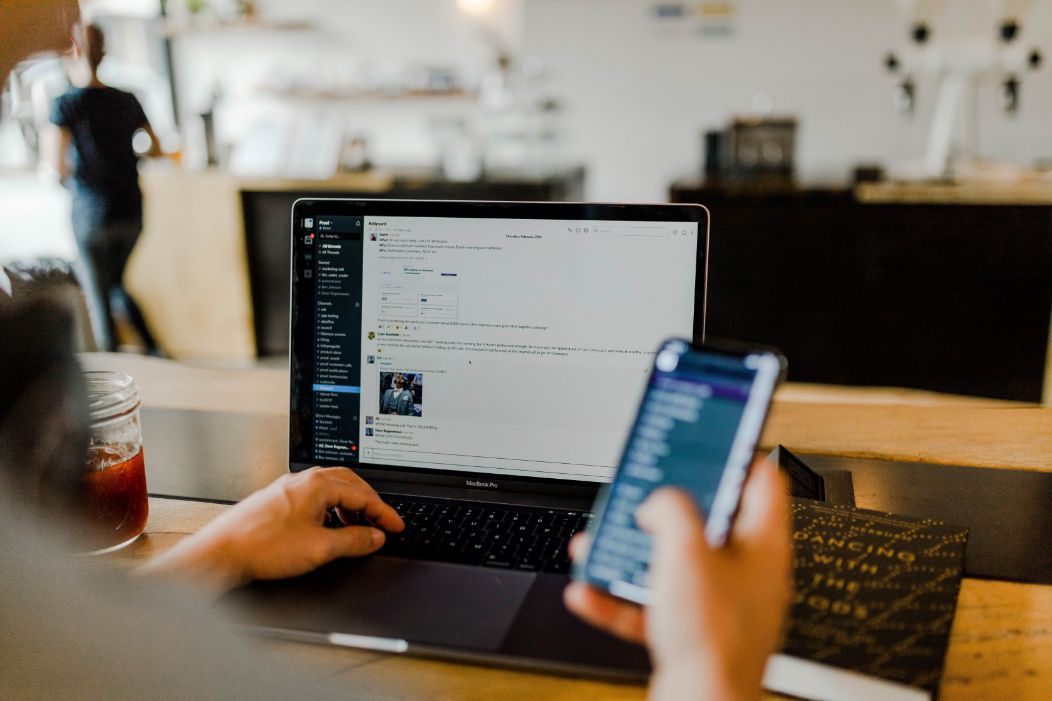Impressions matter when you’re looking for a job. And you are aware that every interaction with a recruiter or hiring manager, even one as seemingly unimportant as an email, counts. A high point of the job search is hearing back from a potential employer. The time has come to advance the conversation now that you’ve put in the effort and submitted your applications for jobs. Responding to the interview email can be a little intimidating, especially for a candidate who is just starting their career.
What Is An Interview Request Email?
A message inviting a candidate to an interview is known as an “interview request email” and is sent by a hiring manager or recruiter.
After reviewing resumes and choosing which applicants to schedule interviews with, recruiters typically send emails to applicants. You will be asked for an interview if your resume passes the initial review.
If your phone number is on your resume or application, the hiring manager may call you directly on occasion, but more often than not, they will send you a brief email inviting you to an interview.
Even though these are informal emails, they still represent your initial communication with the business. It’s crucial to comprehend their requests and provide the right information in return.
Interview invitations frequently come with:
- Please specify the position you applied for.
- Dates and times suggested for the interview.
- When are you available for an interview?
- Location or method (phone, in-person, or virtual) of the interview (or a statement that a link for a virtual meeting will be sent once a time is confirmed).
- Requests for additional documents, such as a portfolio, reference list, resume, or cover letter)
- Who will be conducting the interview with you, including their name or title?
When you receive an email inviting you to an interview, the most crucial thing to do is to read the email several times to ensure you don’t miss any important information.
It will help you get everything across to the person you’re emailing if you read over the email a few times to ensure that your response satisfies all of their requests.
Additionally, you can take advantage of this email to confirm that you are interviewing for the appropriate position at the appropriate organization.
Making sure the position is the one you applied for and want to continue the application process requires a moment because resumes can occasionally get mixed up.
How To Reply To An Interview Email?
Be Timely With Your Reply
On average, it takes about 23 days to complete the interview process. For companies, time is money. Employers want to be able to complete an already drawn-out hiring process as quickly as possible.
Make it simple for them by answering any correspondence they send your way as soon as possible.
When you get the invitation, reply right away. Instead of waiting days, you ought to reply right away. Spend the time necessary to review your schedule, compose a gracious response, and proofread your email for errors. then send your response to the interview invitation as soon as you can.
A prompt response demonstrates to employers that you are serious about the position, and it will facilitate them in hastening what can be a drawn-out hiring process.

Be Courteous And Concise
Always express your gratitude for being chosen as a job candidate.
You can accomplish this by being formal in your response and by thanking the recruiter in the first sentence of your email. You can also include a final phrase that expresses your appreciation, such as, “I want to say once more how much I value our meeting.”
However, one thing to remember is to avoid gushing. As hiring managers and human resource teams must currently complete numerous emails and scheduling tasks, you should keep your response to a minimum. Only one or two sentences will do when it comes to thanking the employer.
A succinct and kind email response also demonstrates to a potential employer how you might represent their organization in future communications with clients.
Use Proper Formatting
This basic format should be used in all responses to emails inviting candidates to interviews:
- A salutation
- Body
- Closing
- Email signature with contact information
Remember to be formal rather than informal when choosing your salutation and closing. “Although the phrases “dear,” “sincerely,” and “kind regards” may sound boring, they work. They also take the guesswork out of addressing your contact if you’re not sure how.
Another crucial thing to keep in mind when writing a salutation is to always address the appropriate person (rather than, say, using the company’s general email address) and to put the appropriate title before the name of your contact.
Next, you should limit the body of your email to two or fewer brief paragraphs and keep it concise. If you absolutely cannot avoid a scheduling conflict, confirm the time of the interview with your appointment manager or offer alternate times.
Extra information and questions should be saved for the actual interview; they can all be brought up at this time.
Be sure to include your full name and an email signature after the closing, too. Following your name are a few lines that contain your signature and vital contact details, such as:
- Email address
- Phone number
- Website or LinkedIn profile (if relevant and current)
Even if it’s already on your resume, your signature gives the employer a quick and simple way to locate your contact information.
Giving specifics is another way to make the recruiter’s job as simple as possible and demonstrates that you are considering their priorities while participating in the interview process.
Get Familiar With Interview Scheduling Tools
In place of standard email, human resource teams are utilizing interview scheduling tools. In fact, LinkedIn listed the use of interviewing tools as one of the top five trends for the future of recruiting.
Given the widespread adoption of these cutting-edge technologies by businesses, it’s critical to be knowledgeable about the most recent equipment utilized by potential employers.
In a remote-first workplace, the use of Zoom, Skype, and Microsoft Teams for phone interviews and video interviews is growing. Meeting information is frequently shared between them as well.
Always meet the employer where they are by utilizing their technology when given a different method of communication to set up an interview.
Check For Errors
Make sure your email is error-free by proofreading it before sending a response to an invitation to a job interview.
You might find it easier to catch an error if you read your response aloud. For an additional layer of review, you can copy and paste your work into a spelling- or grammar-checking tool.
Even though it’s only a brief email response, it’s crucial to edit your language with the same care that you did when you revised your resume, cover letter, and job application and carefully read the job description.
By doing this, you can be certain that you’ll give the recruiter a precise and clear message.
Follow Appropriate Guidelines
Here are some guidelines to remember as you learn how to respond to an interview request:
- Be polite. Declare your excitement for the opportunity and thank the employer.
- Get to the point. Save a review of your qualifications for the interview; you don’t need to do it in this email.
- Be professional. Avoid using emoticons, emojis, and text/chat abbreviations. Excessive use of exclamation points and all caps should also be banned.
- Aim for formality. Use the title of the hiring manager (e.g., (Mr., Ms., Dr.) followed by their last name. First names are acceptable if you and the hiring manager are close friends.
- Proofread. Before sending, make sure the email is error-free by going over every section.
- Reply to everyone. To keep everyone included in the email thread, click “Reply All.”
Template
Send a succinct and straightforward message like this one once you accept the selected date and time:
TO: [person who sent you the invitation or the addressee specified in their message]
CC: [others who were copied on the invitation message]
Subject: [job title and interview date] OR [RE: subject from the responding message]
Dear [Addressee’s Name, such as Mr. Jones]:
Confirming the interview on [date] at [time] to speak with [names] about [job title]. The meeting will be conducted via Zoom [or whatever technology this employer uses].
I am very interested in learning more about this opportunity, so I look forward to speaking with you [and other names, if appropriate]. If you need any additional information about me, kindly let me know.
Best regards,
[your full name]
[best phone number for your job search]
[your LinkedIn profile URL]

